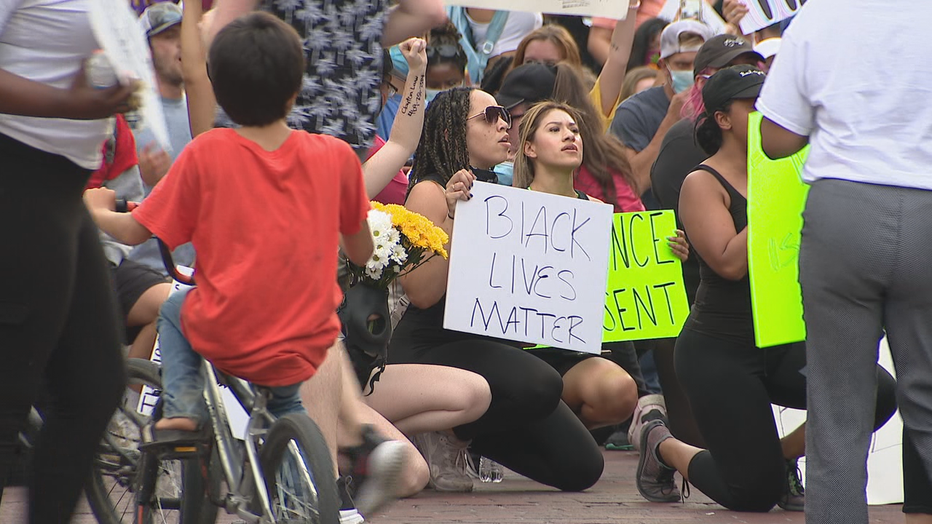As George Floyd protests continue, how will change come about?

As George Floyd protests continue, how will change come about?
Protests over the killing of George Floyd continue around the nation and the world. But what happens when the chanting stops? How does change happen?
DALLAS - Protests over the killing of George Floyd continue around the nation and the world.
But what happens when the chanting stops? How does change happen?
Clarence Glover fought the fight of police reform in Dallas 40 years ago, He said what was done then can work again.
And a 26-year veteran of the Dallas Police Department who understands the message behind the protest said the righteous indignation must transform to reform.
“The world saw it and it enlightened them. They was like, ‘This is going on?’ The African American community has been screaming this all along,” said Dallas PD Sergeant Sheldon Smith, with the National Black Police Association.
Smith said that is why we've seen all people protesting.
“We've had 10 days of marching and protest, which I fully support,” he said. “But the bigger issue now is, what is the next step?”

From law enforcement sworn to serve and protect, to a segment of society untrusting of police, even officers of color.
“In the past 10 days, I’ve been called everything but a child of God by my own people, people who look like me. And then I’ve had people who don't look like me tell me I am not black,” Smith added. “Because I’m a police officer. So for African American police officers, it’s a difficult road.”
Smith applauds officers across the country who have taken a knee, but warns that is not the answer.
RELATED: More George Floyd death coverage
“Okay, so now you've knelt, but I need for you to sit at the table and let me know what is it that you're going to do to change,” said Clarence Glover, president of the Sankofa Education Service. “We were able to change the deadly force policy from property over life, to life over property. We were able to rid the community, change the choke hold. We got rid of the choke hold.”
Glover created and taught the first multicultural and racism training for the Dallas Police Department in the 1980s.
Glover said the model that brought reform to the Dallas Police Department then can work again.
“We did not transition. What we did in the 80s, into the 90s, and the 2000s,” Glover explained. “We must understand the civil rights movement for social justice is not a sprint. It’s a rally and we must pass the baton of freedom and justice on from one generation to the next.”
A generation now unified, perhaps like none before.
“18,000 departments in the U.S. 800,000 officers. Each one of those officers have heard you and we're glad that they have heard the community speak, the nation speak, but we've got to go to the next step,” Smith said.
Can the model from the past be the next step and the foundation to begin again?
Glover met with police and city government leaders Thursday afternoon.
Smith said he thinks some change has already started, and that it began 10 days ago.

